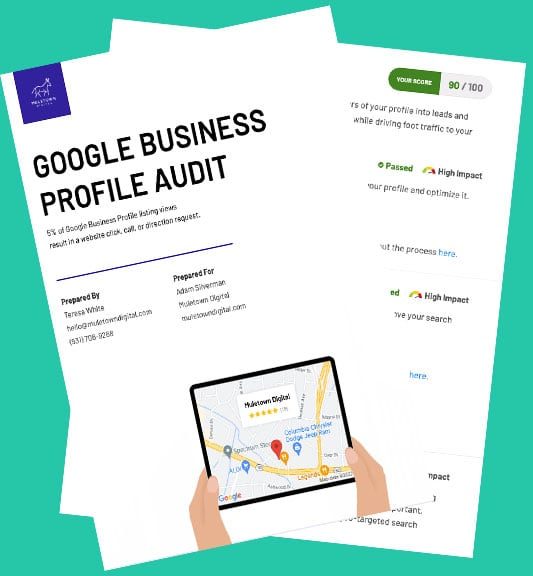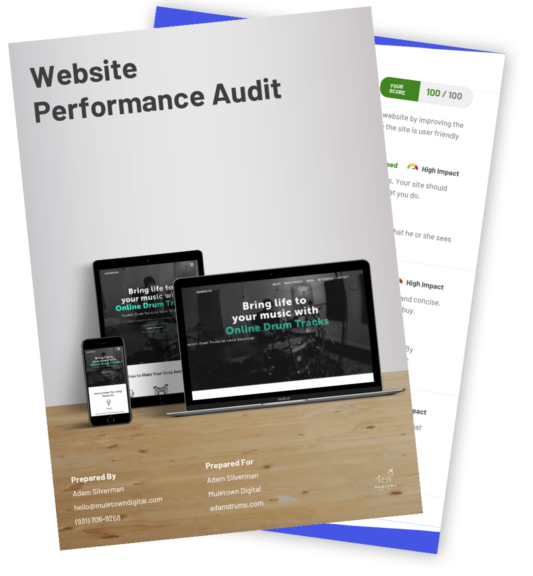Does website speed really impact my business?
I’m willing to bet right now that many of you business owners are thinking – “I’m not a website developer, so why should I care about website speed”? It’s a fair question. The answer lies in your customers. Do you think your customers are okay with waiting around for 15 seconds for your homepage to load?
I’ll go ahead and burst your bubble here, your customers will not wait. They might wait 3 seconds, they maybe could wait 5 seconds, they will NOT wait for 10.
‘You see website speed impacts you from two different angles.
Speed impacts your ability to engage your customers on your website
Let’s start by talking about how it affects engagement. One thing you need to understand your customers and website visitors is that they are HIGHLY IMPATIENT. We always say this in love, but tests have proven that you have less than 5 seconds to not only load your page but explain about your company and services before they will leave.
So if you have a website that loads in 8 seconds, even if they do stick around, they are already annoyed and likely starting to think about the next thing they have to do. You’re the afterthought to the Facebook tab they also have open 🙂
A fast loading website is super important because it allows the users to get the information from you that they are looking without friction. Friction would be anything that stops that user from getting to that information. So things like a slow website, confusing titles, or other barriers to information create friction for your users and that will slow down engagement.
In Google Analytics there is a detail called “Bounce Rate”. A bounce rate is the percentage of first-time visitors on your website that leave without clicking deeper into your site. So they would visit only your homepage and go no further. A low bounce rate is a very important factor in conversion on your website. Since speed directly impacts that bounce rate, a fast loading website will ultimately encourage users to continue to dive deeper to where your information and services lie on your site.
The takeaway: By speeding things up on your website, you’ll get more of your visitors to engage with your content, and likely, you’ll get more of your users to follow through with an action (like calling or contacting you). So it’s a MAJOR important factor.

Speed impacts your SEO which affects how people arrive at your website.
Hands down – your website speed affects your Search Engine rankings!
With the publishing of a recent article from Google, they are even considering doing what everyone is calling “speed shaming” which means putting a badge on your website when it goes to load saying things like “This website typically takes a long time to load” and other various statements. So, it’s safe to say, if they’re going to all of that trouble, it will really really really start to impact your search engine ranking. For most small businesses, especially businesses that have a physical location, SEO ranking and results are one of the most important factors in foot traffic and lead generation.
In a world where people are competing with Facebook Ads, Instagram Ads, LinkedIn Ads, Google Adwords, and all of the different paid platforms out there, organic SEO is harder and harder to manage as it is. By having a fast loading website, you’re telling Google “we care about our site, our users, and our user experience on our website, and you should care about us and rank us better” – thanks to Google :).
Some steps you can take to help your website speed improve…
Check out how your website is doing currently. There are many ways to check on this, and before we go further, please know, there are MANY factors in your score. A grade of C in Google is actually really great for most Wordpress and other CMS websites, whereas in Hubspot Speed Grader, you really want at least a “Good” result. So use these but understand that you can’t live and die by what they say.
Also, getting a bad score does not mean that your website team didn’t do their job properly. Budget, timing, goals, and many other things impact the amount of budget that most agencies will spend in speeding up your website. Sometimes a B- is perfect for what you need at the time of launch. If you later need more, you can always do more. That’s the awesome thing about the internet world, it’s always changing and allowing you chances to improve!
So you can toss your website URL into these speed graders here and they will give you TONS of information about your website. We will eventually go into deep detail on how we use these tools, but for now, check them out!
Google PageSpeed Insights (Super Detailed)
HubSpot Website Grader (Basic Overview and recommended first)
Pingdom (Super Detailed)
GTMetrix (Great Speed Check for Grading purposes)
Once you’ve tested your site you can get a rough idea of how you’re doing. Some things that drastically impact your ability to get a super speedy website.
- Website Hosting – if you’re hosting on a shared platform, or not sure where you are actually hosted, your hosting can be helping or hurting you. If you’re on Wordpress, we can help 🙂
- Content Delivery Network (CDN) – adding a CDN can triple your speeds instantly. CDNs have servers in the cloud that deliver your content from the server closest to your user. This makes a HUGE impact on your speed.
- Caching – If you’re using Wordpress you can leverage a Premium or Free plugin to help with your caching (if your hosting provider doesn’t already do this for you). You can check out WP Rocket, W3 Total Cache, WP Super Cache, WP Fastest Cache, and there are surely more of them out there now. We could do entire articles on all of these (and likely will) but Cache is a big helper with your page speed.
- Website Programming – It sort of goes without saying but the way your website is built directly impacts speed and performance. If you’re using a system like SquareSpace or Duda there is little you can do to improve your speeds, you get what you get. If you’re running a custom website there are many optimizations, some cheap and some expensive, that you can do to improve. If you need help with this please feel free to contact us to get our opinion on your results.
Summary
- Website Speed directly impacts your ability to retain traffic that’s already coming to your website
- Website Speed directly impacts your ability to drive traffic to your website and this will continue to become more and more true in the coming years
- You can test your current setup right now to see how you are doing by using Google, HubSpot, Pingdom, or any other website speed testers
- There are ways you can make improvements without spending $10k.
Thanks for taking the time to read this. We hope it was helpful and insightful.
P.S – If you want us to run a speed audit for you and give you our recommendations for your website, just contact us, and tell us you want a speed test. Make sure you give us your website address (URL) in the comments and we’ll connect with you. Thanks and as always we wish you the best from our team here at Muletown Digital.




